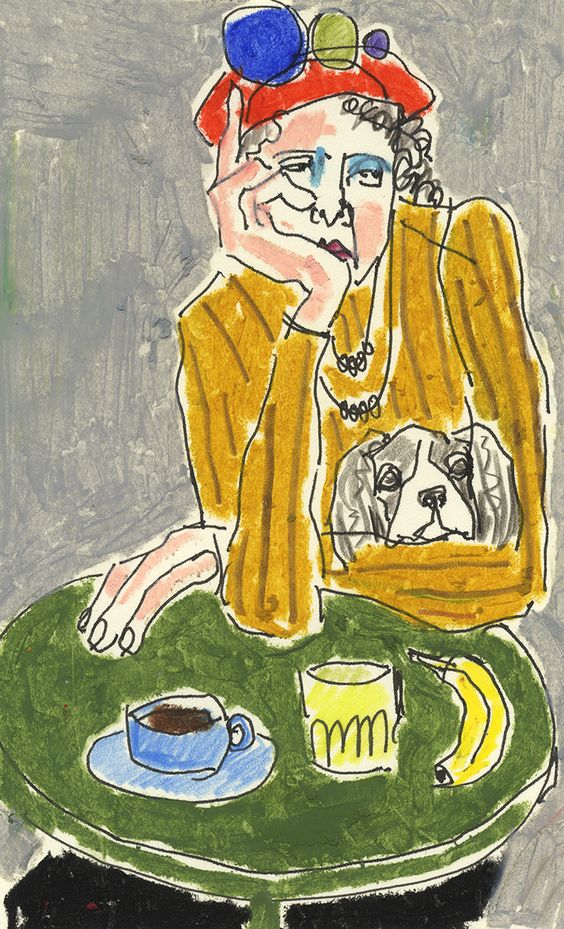Instead of an introduction, let’s conduct a small mental experiment. I am a gay writer from a city that was damaged by the earthquake. Many of my friends were left homeless. The ground is still shaking. I am worried and under tremendous stress. I recently heard that a Molotov cocktail was thrown at a gay man in Zagreb, with the aim of setting that person on fire. In the midst of this hate crime, a confirmation came from the European Court of Human Rights that our judiciary does not act according to its own laws when it comes to crimes against LGBT people. I learned that many years ago, a man who tried to rape and beat up a lesbian was fined 300 kunas. All our courts have said that this is perfectly fine. The European Court of Human Rights has said that our courts are wrong.
Violence is not only sporadic, but also institutional. I know this well, I have experienced violence many times, but now I am reminded of it once again. All of this is squeezing me tightly, my chest hurts. I feel broken. I decided to spend one morning in peace. I will buy my favorite newspaper and read it over coffee. I will run away from earthquakes, homophobia, abusive words, dysfunctional judiciary. So I turn the pages and read articles about culture. My favorites. Often neglected. These are those little pages that others skip because they consider them irrelevant, and the ones that I read first.
I open the culture pages and read: “Daddy’s gay poet.” In the title. And then: “When a fucking clinch is praised in prose about a homosexual, then it can pass, because those poor people have been languishing in their closets for a long time.” This time, the newspapers not only transmitted the violence, they produced it. I go online to see if that text is available on the Internet. It is, although with an altered, somewhat softened subtitle. Everything else is the same. I conclude that someone from the editorial board thinks that the subtitle of the text is too much. The rest of the text seems to be ok for everyone.
This mental experiment rests on the mechanism of empathy. Putting yourself in someone else’s shoes. While writing it, I tried to imagine how a gay man from Sisak felt when, after physically assaulting another gay man, he read this text. I would like to have empathy for the author of this text, Igor Mandić. A man who proudly stated in an interview that he “managed to […] remove hate speech from Vjesnik, denied […] the right to speak to those who insisted on it”.
Put yourself in his shoes and understand why, if he does not nominally support hate speech, in the text of barely two and a half cards, he needed to talk about the author’s sexual orientation a dozen times, using the word “gay” five times. Understand where the need comes from his own authority, which this man undoubtedly has over a certain number of readers of the older generations, to harness the book of a young, talented and multi-award winning writer and abuse them. He abuses in a way that mocks a community that has already been ridiculed, attacked, constitutionally excluded from the definition of marriage in Croatia, beaten for the price of 300 kuna, burned during a walk in the park. Hence the need to use the word “gay” and its derivatives not once, not twice, but five times in some of the most widely read Croatian newspapers, and to perpetuate some existing, harmful stereotypes about the LGBT population.
An intellectual and/or a cheap provocateur?
Igor Mandić is a critic who is admired by many people whom I personally respect. Some of them will tell me – and similar formulations can be read in various types of texts available on the Internet – that he is a provocative author, and this characteristic of his will stand out in a positive light. In an interview, for example, he will be described as an author who “being 80 years old and six decades of career as a writer, literary critic, essayist, polemicist, columnist, journalist and editor, emerged into an intellectual figure par excellence that raises the storm with each writing. What makes Mandic, in this formulation (not necessarily in real life, of course), an intellectual figure? That he provoked others for a long time and with every sentence, from different positions of power. Who did he provoke?
It is not my intention to attack and name a man who grew up in a completely different society, who in his time gave many good things, which can be deduced from the amount of understanding with which he is showered even when his texts do not deserve it. It is not my goal to write anything that I will later regret. It is not my goal to discredit someone as a person.
My attitude in everything I do is to be gentle with people and sharp with appearances. Let this text of mine not be interpreted as an attack on Mandic, on his good deeds that undoubtedly exist, on his personality, or on the importance of his heritage in our culture. The aim of this text is to identify a number of isolated, incidental actions that I have noticed, which are harmful and symptomatic for the Croatian cultural field. Mandic is neither the first nor the last in whom this series manifested (let’s just remember Ivica Matičević).
This series is as follows: “comradely” belittling of women authors; ridiculing the terminology created for describing books by women authors, with the accompanying devising of derogatory terminology describing literature written by women, in a polemical tone; increasingly free use of derogatory terminology, in a humorous tone; generalized use of derogatory terms not only for women but also for different types of minorities and oppressed groups, under the guise of freedom of expression.
A sentence filled with jokes, then a sentence filled with serious insults
Mandic’s example is used because of his presence in the media, the frequency of his unusual statements and the unfortunate timing of his homophobic critique of Pesut’s novel. Let’s say his case served me, without any derogatory connotation, as a living fossil of how women, minorities, and the oppressed were once treated. As a living fossil of discourse that was not only supported, but also encouraged, because it was considered “provocative”. This series of regressions from “friendly jokes with women” to “our poet-fagot” should be shown, so that it could be said that Mandic tolerates this series because he is old and mature in some other times, and that the fact that most people do not want, to forgive, to quarrel with someone who is already writing about his death, that this fact does not mean that other, younger authors, have the right to write in a way that is discriminatory.
I do not think that Mandic is a bad person, I think that he has recently written many texts that have hurt a large number of people without contributing to anything in any way. I do not think that he is weak as an intellectual, I think that most of the texts on “The Tooth of Criticism” are lazily and objectively poorly written below every level. I do not think that Mandic should be discredited because of his age, just as I do not think that because of his age, the harmful effects that his texts can have should be ignored. I do not think that Mandic should be silenced, suppressed, “canceled”, but I think that it should be said publicly that some of the texts he writes are extremely chauvinistic, and that such texts should not be written in public. I don’t want to participate in the lynching. I want to participate in a public re-examination of what kind of speech we use when we write about other people, lives, identities. I am an author, not a censor – I do not hold a scepter, but a pen. As such, I don’t think it’s up to me to determine for others what to write and how. It’s up to me that when I see something I find harmful, I tell as many people as possible that I think it’s harmful, and argue why I think it’s harmful.
The tooth of criticism that bites the authors
The younger generation of readers, to whom I belong, had the opportunity to get to know Mandić’s provocativeness only in its last stage – in “Tooth of Criticism”, his column in Jutarnji list, where the author forcibly tries to preserve his identity as a provocateur.
I’m not familiar with who the author’s provocative toothiness gnawed while he was in the throes of intellectual power. It was only in some places that I was able to read that he once ridiculed mainly women’s books, and those that are today considered to be some of the greatest writers in this area. So many people remember that he once attacked Vesna Parun, dedicating a whole critique to her book “One Hundred Failures”, in which “one hundred misses” would be the definition for Vesna Parun’s poetry. Although I did not read the mentioned text, I know that many people from that time remember that Mandić “assessed Vesna’s collection extremely negatively”.
The unjust and short-sighted judgment on Vesna Parun’s poetry is just one of a hundred failures of Igor Mandić’s judgment, while he wrote about the authors and their works. Thus, he once wrote about the book Holograms of Fear, Slavenka Drakulić’s first novel, that it was a “hospital diary” and something that was “still too little for a novel”. Namely, Mandić rebuked the author for being a novel with an autobiographical core. At the time, autobiography was accepted in novels, and even one of the more dominant novel codes in world literature – suffice it to mention Lover Marguerite Duras. Did Mandic know that while belittling the biography of our authors? Would Duras make fun of him with the same ridicule?
Furthermore, for the purposes of talking about the book The Road to Saturday by Daša Drndić and three other books by different authors, Mandić coined the term “kitchen literature”. He didn’t like women’s writing then (sometimes, incorrectly, he calls it chick-lit), nor now: in an interview with Novi list, he writes that if he had been a critic, four-fifths of writers “would not be what they are today.”
Read the full article by Marija Dejanović here.


